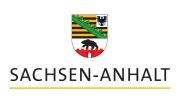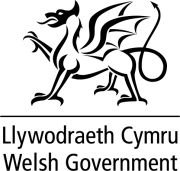
An efficient European economy is based on competitive locations in regions, the use of regional resources and technologies and secure and stable supply relationships. A resilient society and the well-being of future generations are also elements of future-proof regions. The workshop will discuss the advantages of a decentralised territorial approach in the design of measures and projects for structural change to achieve a sustainable and resilient economy and the importance of shared financial management and the partnership principle in this context. Speakers will focus on how cohesion supports regions in addressing rurality, demographic shifts, rail infrastructure and climate challenges.
- Cohesion | Demographics (depopulation and ageing) | Digital and ICT | EU/ European | Governance and Public administration | Industry, entrepreneurship and SMEs (enterprise/ startup/ business) | Local and regional | Mobility and Transport | Rural | Sustainable | Territorial | Youth and citizens engagement
- Code: 15PD252252
- Jacques Delors building, JDE 53
Moderator
Practical information
- When
-
Wed 15/10/2025, 14:30 - 16:00 CET
- Where
- Jacques Delors building, JDE 53
- Type of partnership
- Regional partnership
- Format
- Political/policy debate
- Theme
-
Cohesion and Growth for the Future
- Languages
- English, French, Polish

Partners

Representation of Saxony-Anhalt to the EU

Office of the Marshal of the Mazovia Region

Region of Valencia

Centre-Val de Loire Region

Welsh Government
Reporting
Session summary
On Wednesday, 15 October 2025, over 70 participants attended the political workshop at the Committee of the Regions (CoR) entitled ‘The regional dimension of cohesion policy is key to European competitiveness’. It took place in Brussels as part of the 23rd European Week of Regions and Cities. Other interested parties were able to watch the workshop via live stream. The insightful presentations on regional strengths were followed by a debate between Adam Struzik, Marshal of Masovia (PL), CoR member Karine Gloanec-Maurin, Centre-Val-de-Loire (FR), Carlos Mazón Guixot, President of the Valencian Community (ES) and Sven Schulze, CoR member and Minister for Economic Affairs, Tourism, Agriculture and Forestry of Saxony-Anhalt. He spoke about ongoing projects for structural change towards a sustainable and resilient economy. Moderator Eleanor Vaughan (UK) also welcomed the Maltese Minister for European Funds, Stefan Zrizo Azzopardi, among the guests.
During the workshop, participants discussed the advantages of a decentralised territorial approach to designing measures and projects for structural change aimed at achieving a sustainable and resilient economy, as well as the importance of shared management and the partnership principle in this context. The speakers focused on how cohesion supports regions in addressing challenges in the areas of rurality, demographic change, railway infrastructure and climate.
Quotes
-
Our recently launched venture capital fund is a cohesion instrument which invests in innovative companies in our region Saxony-Anhalt in addition to the support given by the EU Just Transition Fund.
With the SME investment promotion program (Saxony-Anhalt INVESTIERT), we support investments by small and medium-sized enterprises that contribute to accelerating the transformation towards a climate-neutral and sustainable economy.
In Centre-Val de Loire, where more than half of the population still lives in rural areas, we have chosen a territorial development strategy based on solidarity and territorial equality.
These regional policies, underpinned by EU cohesion funds, are tangible tools to revitalize rural areas, foster employment, strengthen social ties, and accelerate ecological transitions.
Collective strength and European unity are built on institutional collaboration and, above all, on the ability to listen to and give voice to each of its regions.
The Valencian Community shows that when this role is acknowledged, everyone—and Europe as a whole—gains in cohesion, competitiveness, and future.
Many regions in Europe that have invested in modernizing and expanding their rail networks have seen clear benefits: increased investment, new residents, and stronger socio-economic cohesion.
Above all, rail transport offers greater comfort and safety, reduces traffic, and is a sustainable alternative to private cars, making it the most environmentally friendly mode of transport.
The Well-being of Future Generations Act is a legislative initiative which offers a powerful example of how embedding sustainability and intergenerational responsibility into governance can help regions become more resilient, inclusive and future-ready.
Additional links
https://comunica.gva.es/es/detalle?id=397496602&site=373409432
https://x.com/delcomval_UE/status/1980994481622299077
https://www.instagram.com/p/DQJVsxTiNGB/?utm_source=ig_web_button_share_sheet&igsh=MzRlODBiNWFlZA==
https://www.instagram.com/reel/DQHRU4KjLlS/?utm_source=ig_web_copy_link&igsh=MzRlODBiNWFlZA==







